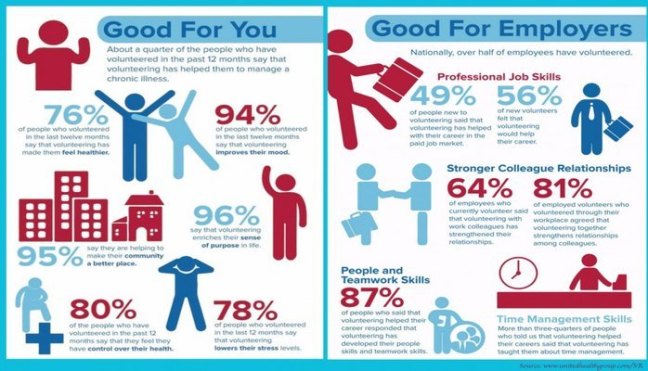 Have you ever been at work when you notice there’s only 30 minutes left in your shift? It’s usually not enough time to start a new project, but it’s also too early for you to go home, so you watch your clock as it slowly ticks away until it’s time to leave. This happens more often than not, but what can you do to finish out your workday on a positive and productive note?
Have you ever been at work when you notice there’s only 30 minutes left in your shift? It’s usually not enough time to start a new project, but it’s also too early for you to go home, so you watch your clock as it slowly ticks away until it’s time to leave. This happens more often than not, but what can you do to finish out your workday on a positive and productive note?
How you finish your workday is critical as it holds a large impact on your work, productivity, and attitude. Take time at the end of your shift to get you ready for tomorrow. So here are three ways you can end your workday better and stronger.
Review and Plan
The first thing you to do is look over your to-do list to find out if you’re where you need to be. There might be some assignments you’ve overlooked or a reminder of what needs to be finished before you leave. If you don’t like your progress, plan what you need to do and when you’ll get it done so you don’t get further behind.
This is your chance to reflect. Think about what you’ve accomplished and how good it feels to be productive. If you’ve fallen short on some tasks, take the time to make a new to-do list. Determine what needs to be finished tomorrow and how you’re going to do it. If you have a new to-do list, you’ll have a head start the next day and be more productive.
Check-In and Check-Out
Depending on the type of working relationship you have with your manager, visit with one or all of your supervisors to discuss the progress of any tasks you’re working on. This way, you can get caught up on any updates or changes that need to be made. Check in with co-workers to get any updates from them and to make sure everyone is one the same page.
Talking to your boss and colleagues will not only help everybody stay on task easier, but there are real emotional benefits from saying goodbye to people before leaving. Most people think it’s important to say hello in the morning, but it’s just as vital to say goodbye instead of silently heading out the door. By giving proper farewells or even an honest compliment, you are showing co-workers and managers that you care and can improve everybody’s mood throughout the day.
Tidy up and Shut Down
It’s rather defeating to walk away from a big mess after a busy day, which confronts you in the morning or after a fun weekend. Before leaving, clean your workplace by organizing your desk, throwing away trash, or cleaning and storing your tools. When you come to a clean workplace in the morning, it gives you a feeling of starting the day off fresh.
If you work in an office setting, you can use the last of your time to clean your email inbox of forwards, newsletters, and any other old messages. Emails can back up quickly increasing your chance of missing important information.
It’s also important to shut down when leaving. Leave your stress and worries at work. Turn everything off and disconnect yourself from your network. Turn off your smart phone or disable email alerts and enjoy your time off to recharge.
If you use your last few minutes to end your workday right, you’ll be more productive and will be less likely to feel drained and burned out. What are some ways you have made the most out of the end of your workday?
For Nashville, TN jobs, click HERE
 Most of you probably own a cell phone and bring it to work with you so that you’re able to stay in contact with your family and friends, and have it just in case of emergencies. While some workplaces have personal cell phone usage guidelines in place, some may not enforce the rules, and others may not have any rules at all. So, to avoid a major cell phone faux pas at work, here are five guidelines you should follow regardless of your type of job or position.
Most of you probably own a cell phone and bring it to work with you so that you’re able to stay in contact with your family and friends, and have it just in case of emergencies. While some workplaces have personal cell phone usage guidelines in place, some may not enforce the rules, and others may not have any rules at all. So, to avoid a major cell phone faux pas at work, here are five guidelines you should follow regardless of your type of job or position. While you should always try to have specific examples of how you’ve been able to demonstrate and utilize your skills, sometimes it takes a certificate or recommendation from a credible organization to get the attention of a decision maker or hiring manager.
While you should always try to have specific examples of how you’ve been able to demonstrate and utilize your skills, sometimes it takes a certificate or recommendation from a credible organization to get the attention of a decision maker or hiring manager. Whatever the reason is you’re looking for a new job, you’re going to need a resume. And, you want one to stand out to an employer and make them take notice of you in a positive way. So, what do you do if your work history has a few gaps along the way? With typically only one minute to grab someone’s attention with your resume, prospective employers sometimes don’t take the time to investigate little potholes along a job seeker’s workforce journey. Employers see work gaps frequently, but what they really want to see is an individual’s career growth and progression. So, if you’re currently experiencing a few of those gaps in your work history, what can you do now to help your resume compete with the elite?
Whatever the reason is you’re looking for a new job, you’re going to need a resume. And, you want one to stand out to an employer and make them take notice of you in a positive way. So, what do you do if your work history has a few gaps along the way? With typically only one minute to grab someone’s attention with your resume, prospective employers sometimes don’t take the time to investigate little potholes along a job seeker’s workforce journey. Employers see work gaps frequently, but what they really want to see is an individual’s career growth and progression. So, if you’re currently experiencing a few of those gaps in your work history, what can you do now to help your resume compete with the elite? Volunteering is a rewarding way to make a positive difference in the lives of others. And, the benefits of giving back are countless. The fact is giving back not only affects your community, but your professional life, as well. From enhancing your resume to establishing new connections to growing leadership skills and more, take a look at what giving back can do for your career.
Volunteering is a rewarding way to make a positive difference in the lives of others. And, the benefits of giving back are countless. The fact is giving back not only affects your community, but your professional life, as well. From enhancing your resume to establishing new connections to growing leadership skills and more, take a look at what giving back can do for your career. You’ve probably heard the benefits of finding a mentor, how they can help with skill development and learning the ropes in the working world. Mentors can offer wonderful advice on how to handle some of the unspoken rules in the business environment, as well as help coach and challenge you in your career.
You’ve probably heard the benefits of finding a mentor, how they can help with skill development and learning the ropes in the working world. Mentors can offer wonderful advice on how to handle some of the unspoken rules in the business environment, as well as help coach and challenge you in your career. Many people are facing the challenge of trying to get back in the workforce. With the unemployment rate lower than it’s been since the recession, families are looking for ways to gain a much needed paycheck. President and CEO of The LaSalle Network, Tom Gimbel, shared tips with Fox Business News on how stay-at-home parents and people who have been without a job for a while can transition back into the workforce.
Many people are facing the challenge of trying to get back in the workforce. With the unemployment rate lower than it’s been since the recession, families are looking for ways to gain a much needed paycheck. President and CEO of The LaSalle Network, Tom Gimbel, shared tips with Fox Business News on how stay-at-home parents and people who have been without a job for a while can transition back into the workforce. Creativity. I wish it were something that could be easily turned on. At the flip of a switch, life and work could become so much easier. But in the real world, working at fast pace day in and day out can be a challenge. Even for the most creative employees, the flow of ideas dries up sometimes.
Creativity. I wish it were something that could be easily turned on. At the flip of a switch, life and work could become so much easier. But in the real world, working at fast pace day in and day out can be a challenge. Even for the most creative employees, the flow of ideas dries up sometimes.
 We live in a technological world. Our phones are smart, our cars are more efficient, and our job listings are online. However, some job seekers tend to forget that the Internet is not the only place they can do their job searching. So, if you’re a tech savvy person who’s in pursuit of a job, but still haven’t had much success, this article is for you. We’ve assembled a list of a few different approaches to use when hunting for a job in addition to using technology.
We live in a technological world. Our phones are smart, our cars are more efficient, and our job listings are online. However, some job seekers tend to forget that the Internet is not the only place they can do their job searching. So, if you’re a tech savvy person who’s in pursuit of a job, but still haven’t had much success, this article is for you. We’ve assembled a list of a few different approaches to use when hunting for a job in addition to using technology.